The ACA case is a perfect example: the plaintiffs don't have standing ($0 tax doesn't affect them), their theory is absurd (Congress can't zero-out a tax?), and the remedy is ridiculous (the $0 tax is plainly severable from pre-existing condition protections). And yet... /1
https://twitter.com/EricLevitz/status/1308387501216854017
... nine Republican-appointed judges who have reviewed the ACA case have approved this thrice-ridiculous claim. A district judge adopted the whole thing. Two circuit judges adopted the first two parts, said the third part needs more analysis. Six more circuit judges agreed. /2
There's no way to reconcile the ACA lawsuit with basic, longstanding doctrines in the law like standing and severability. The case keeps winning so Republican judges can enact policy changes voters hate and Congress rejected. /3
supremecourt.gov/DocketPDF/19/1…
supremecourt.gov/DocketPDF/19/1…

supremecourt.gov/DocketPDF/19/1…
supremecourt.gov/DocketPDF/19/1…
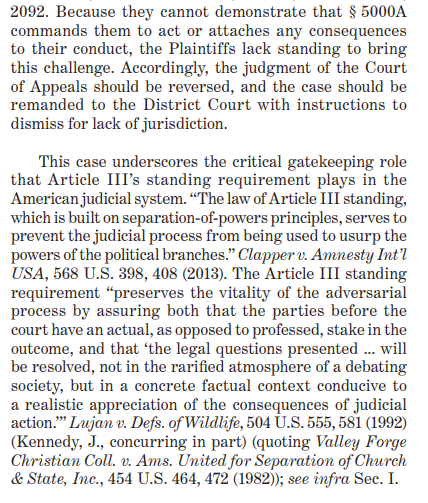

The problem isn't just Republican judges undoing the work of Congress. They'll happily expand statutes for political reasons. The Voting Rights Act (1965) was held to be outdated, but the Arbitration Act (1926) defeats everything before or after it. /4
https://twitter.com/MaxKennerly/status/1121095591042351104
The courts even mess around with the timing of cases for political reasons. Cases bad for Republicans get slow-rolled and dragged out past elections. Cases good for Republicans get rocketed to the top, enjoying immediate relief via stay orders. /5 

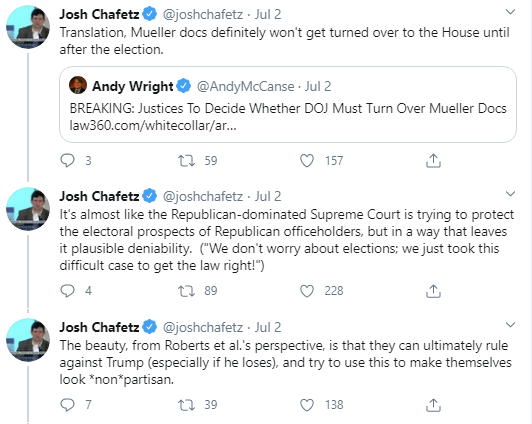
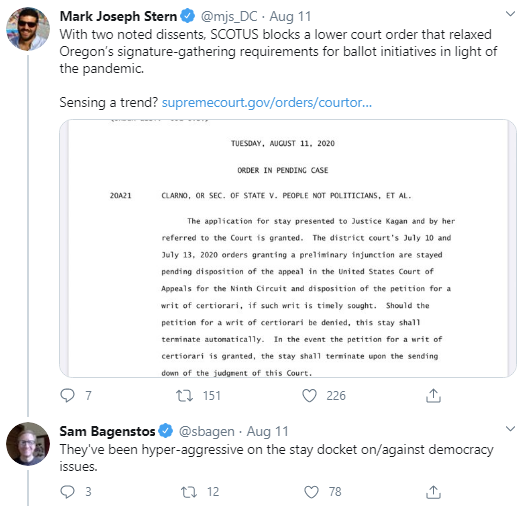
The problem is getting much worse. The bar for ABA-qualified isn't high, and doesn't account for ideology. Clinton had 3 not-qualified judges confirmed. Obama didn't even nominate any. GW Bush and Trump had 12 confirmed, with 1 pending. /6 

I hear Kavanaugh "radicalized" conservatives. Sure, whatever—but even before Ford's allegations he was obviously picked solely to advance partisan politics. His entire career was Republican politics, even his brief stints at Kirkland & Ellis. /7 

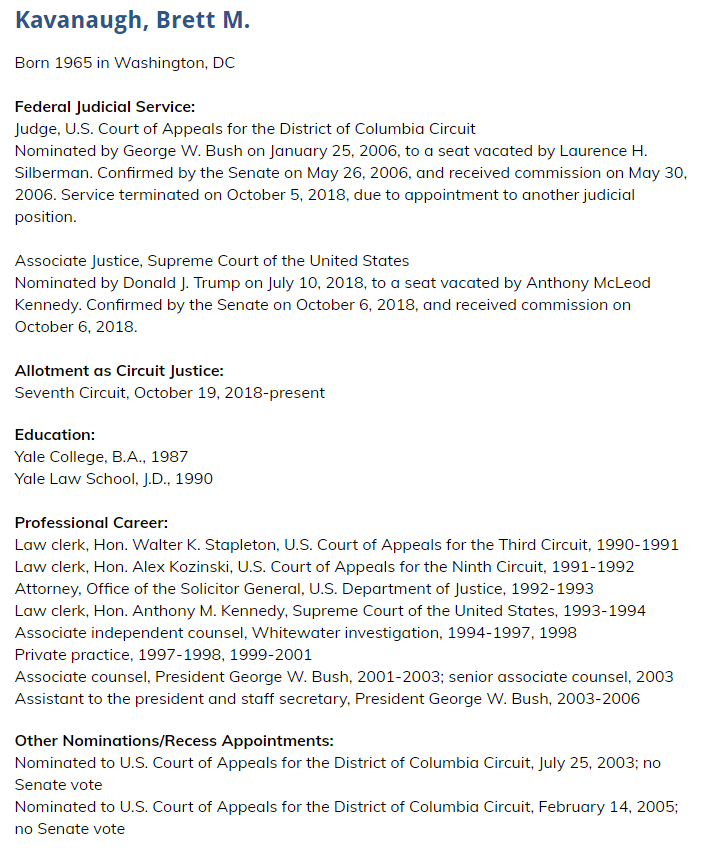
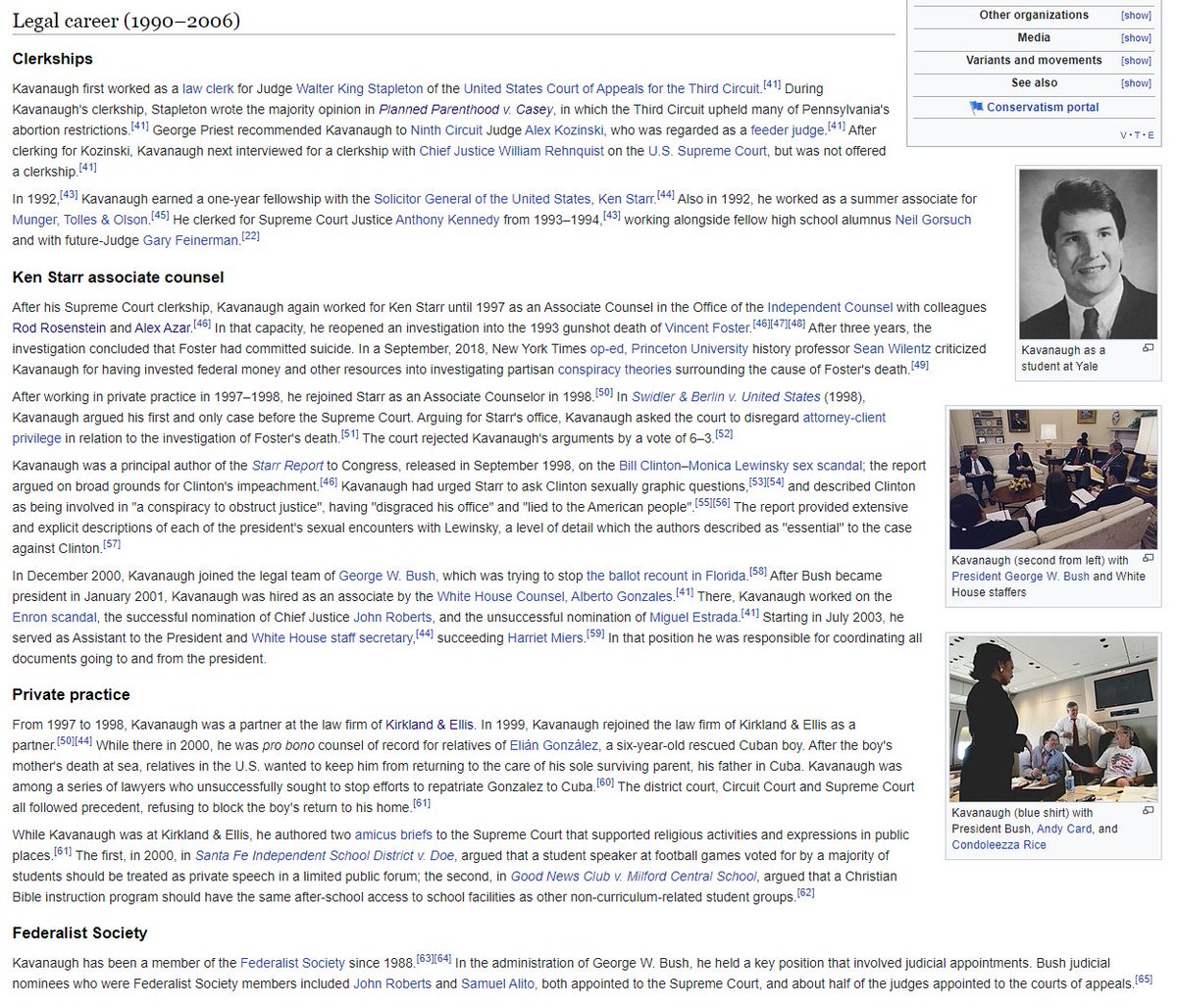
All of which is how we end up here, with proposals to add SCOTUS seats (which frankly should've been done with the addition of new federal circuits) or to abandon judicial review. There aren't any other options. Republicans broke the federal courts. /end
https://twitter.com/jbouie/status/1308396535458279425
• • •
Missing some Tweet in this thread? You can try to
force a refresh
























